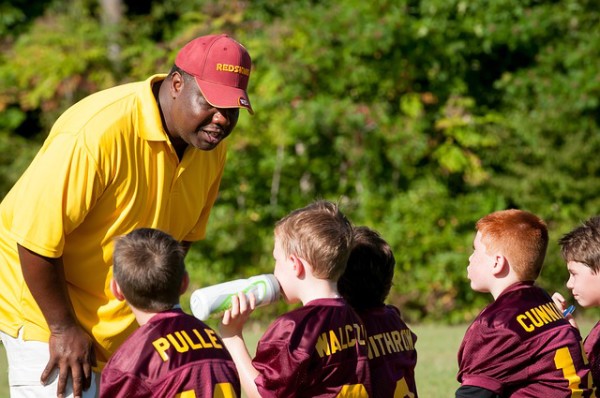“The more you do, the more you can do,” my mother would say.
Oh, there’s a breaking point somewhere. If your kid took on tennis lessons, joined the track team, got the lead in the spring musical, kept up with school work and found a full time job on the side, something would breakdown eventually.
But statistics show — I know from sitting in school board meetings as a cub reporter — that the kids who take on sports and piano lessons or play the flute and join the boy scouts do as well in school or better than the ones that don’t.
How does this make sense? It’s logical that someone with less time spent on distractions should do better in school. Why does it go the other way?
The basic theory is that kids with more on their plates learn how to manage their time. They do homework in the car on the way to soccer practice or in the wings of the auditorium during play rehearsals. They do it, in part, to protect their down time — their “chill” time. But they do it one way or another and their grades hold together nicely.
Another theory — one I happen to subscribe to, myself – is that kids who play on a sports team, play saxophone with jazz ensemble or join the debating team feel more like they are part of their school. And in school, even more than at home, the focus and motivation is centered on school work.
Without the extra-curricular activities, kids have too much time on their hands. They learn, essentially, how to procrastinate. There is no need to hurry, so they don’t. Pretty soon, homework isn’t done until after dinner and then until morning and then not at all.
Kids can structure their own time, but it is very helpful if they see the boundaries. If they have a half hour only to do a math assignment, they understand that. If they have two hours to do the same half hour worth of work, that half hour gets away from them.
It always knocks me aback when a parent says that they take activities away from a child who is not keeping up with their work. This just gives them more time to goof off.
I spoke to one mother at soccer practice just yesterday. “If they don’t get their homework done, they obviously can’t handle their lives. They aren’t taking responsibility. So, I take away some of their fun time. No more sports. No visiting friends. No movies. No going out.”
OK, this works to a point, but it doesn’t teach much, because the parent is still taking responsibility for the child’s behavior. But it does, in some instances, in the short term, help get the job done.
I would never take away my son’s script, his soccer ball, his softball glove, his guitar or his bicycle. In part, the reason for this is that you never want to send your child the message that you don’t trust them.
I hate to slice hairs, but when my child snuck out one night, I did not say “I do not trust you.” I said it was a trust issue and that he would have to work on trust, then I gave him something very small, even enjoyably, to do for two months — feed the dog.
You don’t restore trust in a week, so why do something dramatic, like ground a child for a week, to restore trust?
On the other hand, don’t give him or her something draconian to do, either. You don’t want to set up your child to lose. You want to set up your child to win. And part of setting your kids up to win means giving them the tools they need (or helping them develop the tools they’ll need) to do just that.
My daughter, to use one example, plays sports but I wouldn’t send her off to her soccer game without the proper cleats. I make sure that before she goes to her first softball practice that we’ve found the best softball gloves for fielders her age and found one in her size.
To that end, I wouldn’t take away his structure if the goal is to teach him better responsibility and time management. Kids need to learn to “chill” around their responsibilities. If they don’t learn those skills now they won’t do well in college and they’ll have a really hard time finding a job with any sort of security or a livable wage. Taking away their structure (aka grounding them) doesn’t teach them how to do that. It just teaches them that slacking gives them more time (albeit more boring and lonely time) to slack.
That’s the bottom line — set them up to win and you end up with winners. Set them up to lose or label them as untrustworthy or as losers and it will generally backfire.
They’ll take your word for it and then they’ll behave like losers — just as you set it up. Or they’ll not take your word for it and they’ll resent you for saying it.
Set them up as winners every time.




I really think you have to find that happy medium. Our kids enjoy extra curricular activities like soccer and after school clubs. However, I don’t want my kids to be so loaded down with “things” that they can’t focus well on any of them. It’s all about balance 🙂